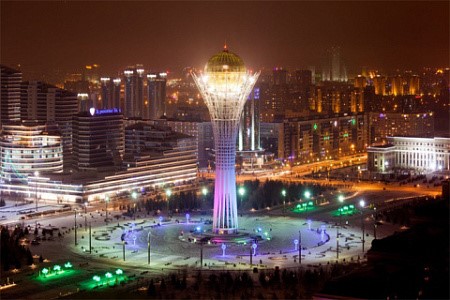Kazakhstan gets richer, Kazakhs get poorer
The country's GDP has risen 4.8% in the past five months, but large sections of the population continue to suffer the effects of high inflation. The Minister of the Economy defends himself by citing wars and other factors linked to the global crisis. The crux of the structural reforms.
Astana (AsiaNews) - The Minister of National Economy of Kazakhstan, 40-year-old Alibek Kuantyrov, tried to explain to the journalists who stopped him in the corridors of the Mažilis, Astana's parliament, why Kazakhs are suffering heavy blows to the social economy and family, despite the growth of all national indicators.
According to the data he himself presented to the deputies, in the last 5 months Kazakhstan's GDP has reached +4.8%, with positive boosts in both the productive and service sectors, in addition to the large increase in exports, going up from - 2.6% in 2020, in the midst of the Covid storm.
His responses to the population's apprehensions indicate the factors of the crisis of the world economy, rather than the national one, with the consequences of war and widespread inflation.
Inflation itself, according to the minister, a young and brilliant economist with studies in Russia and America, is the most contradictory signal: "high inflation is a bad signal for the economy, but on the other hand in every economy in growth becomes inevitable, and this is a global problem, not just Kazakhstan."
The government has “taken all necessary measures” to contain inflation, otherwise things would get even worse, pointing to import restrictions and controls, fiscal stimuli and more.
An import ban has in fact been decreed on certain items, to feed the internal market, and the Central Bank has tightened monetary policies since last year, "which has given good results", assures Kuantyrov.
And yet, Kazakhstan's economic growth remains as set by international financial agencies, even if "there are reasons to hope for an improvement in our rating." In addition to the war and sanctions, one cause of the slowness of these steps forward remains the wake of the coronavirus, and the geographical condition of the country, which has no access to the sea.
The minister speaks of a war "that started last year on our continent", meaning the geopolitical context of Eurasia, "and now the conflicts around us are multiplying". The distance from the seas and major waterways "makes trade particularly difficult, especially when human and ecological cataclysms are unleashed".
All the ministry staff is committed to verifying the real incomes of Kazakh citizens, and the minister himself says that he continually visits the various regions scattered across the vast territory of the country, especially in the auly, the mountain villages, and only this year have they been subsidies of 266 billion tenge (over half a billion euros) were granted to the regions.
The effectiveness and stability of economic growth, the minister reports in his reports, depend greatly on structural reforms and "adaptation measures to face the new challenges" of a development that is difficult to control. In addition to relief for emergency situations, also linked to extreme climatic events, investments are needed in healthcare, education, infrastructure and support for small and medium-sized businesses, trying to rationalize resources and avoid creating debt on the state budget.
The commitment to address the ecological crisis, in particular, sees Kazakhstan aimed at effectively implementing the previous five-year plan, 2020-2025, with the indications of the Ecological Code approved in 2021.
As Kuantyrov reiterates, "these are very important initiatives , to allow our country to stimulate increasingly inclusive and sustainable common growth." Astana has also taken on an active role in front of all international bodies to fight against climate degeneration, trying to achieve "carbon neutrality" by 2060.
07/02/2019 17:28
12/02/2016 15:14







.png)










